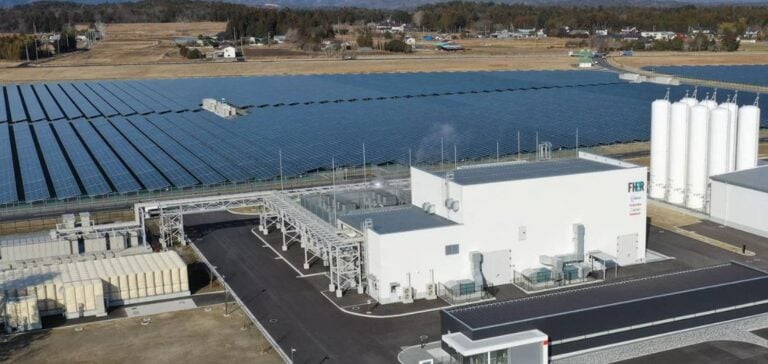Hydrogen developers in the U.S. are examining various renewable energy sourcing strategies to comply with national and international electricity sourcing standards. This thinking comes against the backdrop of the US government’s proposed Inflation Reduction Act (IRA) rules, which aim to promote low-carbon hydrogen production.
Impact of new regulations
Hydrogen producers have highlighted the growing popularity of integrated projects to facilitate compliance with global regulations. The proposed guidelines for 45V Production Tax Credits announced by the U.S. Treasury and Internal Revenue Service on December 22, 2023, could impose barriers to the adoption of low-carbon hydrogen. According to an analysis by S&P Global Commodity Insights, these rules could slow investment in hydrogen production, reduce affordability and curb market growth.
Sourcing challenges and strategies
Developers of green hydrogen electrolysis projects are exploring interim options to secure renewable energy and comply with additionality criteria. Prior to the introduction of the provisional IRA rules, many projects were planning to connect to the grid to meet their electricity needs. However, current rules, designed to ensure that subsidized hydrogen production does not increase emissions, make integrated projects using dedicated renewable energies more commonplace. Large-scale projects in the United States, designed to export hydrogen to Europe, have a better understanding of European legislation on renewable hydrogen. However, a lack of clarity on domestic production could delay financial decisions and investments for hydrogen developers.
Producer outlook
A major developer of hydrogen electrolysis projects in the USA said on May 30 that it would continue to use a mix of grid electricity and a renewable power purchase agreement until the finalIRA rules are published. This developer aims to reduce its carbon footprint by combining its energy consumption with renewable energy credits. Other sources are considering oversizing their renewable energy purchase agreements to optimize operations in line with grid prices, a viable strategy only if it meets the three-pillar criteria.
Regulatory implications
The draft IRA rules received around 30,000 comments from market players. Some argue that facilitating grid connections would speed up hydrogen production, leading to initial cost reductions. Michael Wheeler, Vice President of Government Affairs at Intersect Power, stressed that regulations should promote long-term sustainable hydrogen installations, even after tax incentives end. New Fortress Energy warned that the 45V interim rules would severely limit the adoption of clean hydrogen in the U.S., delay the Biden administration’s decarbonization efforts and eliminate the potential for millions of jobs. The company plans to produce hydrogen by electrolysis to fuel OCI’s green ammonia plant in Beaumont, Texas.
New U.S. hydrogen regulations pose significant challenges for producers seeking to comply with strict renewable electricity sourcing criteria. While integrated projects using dedicated renewable energies are gaining in popularity, regulatory uncertainty continues to hold back investment. The future of green hydrogen will depend on producers’ ability to navigate this complex regulatory landscape and find viable solutions to meet new requirements while sustaining market growth.






















